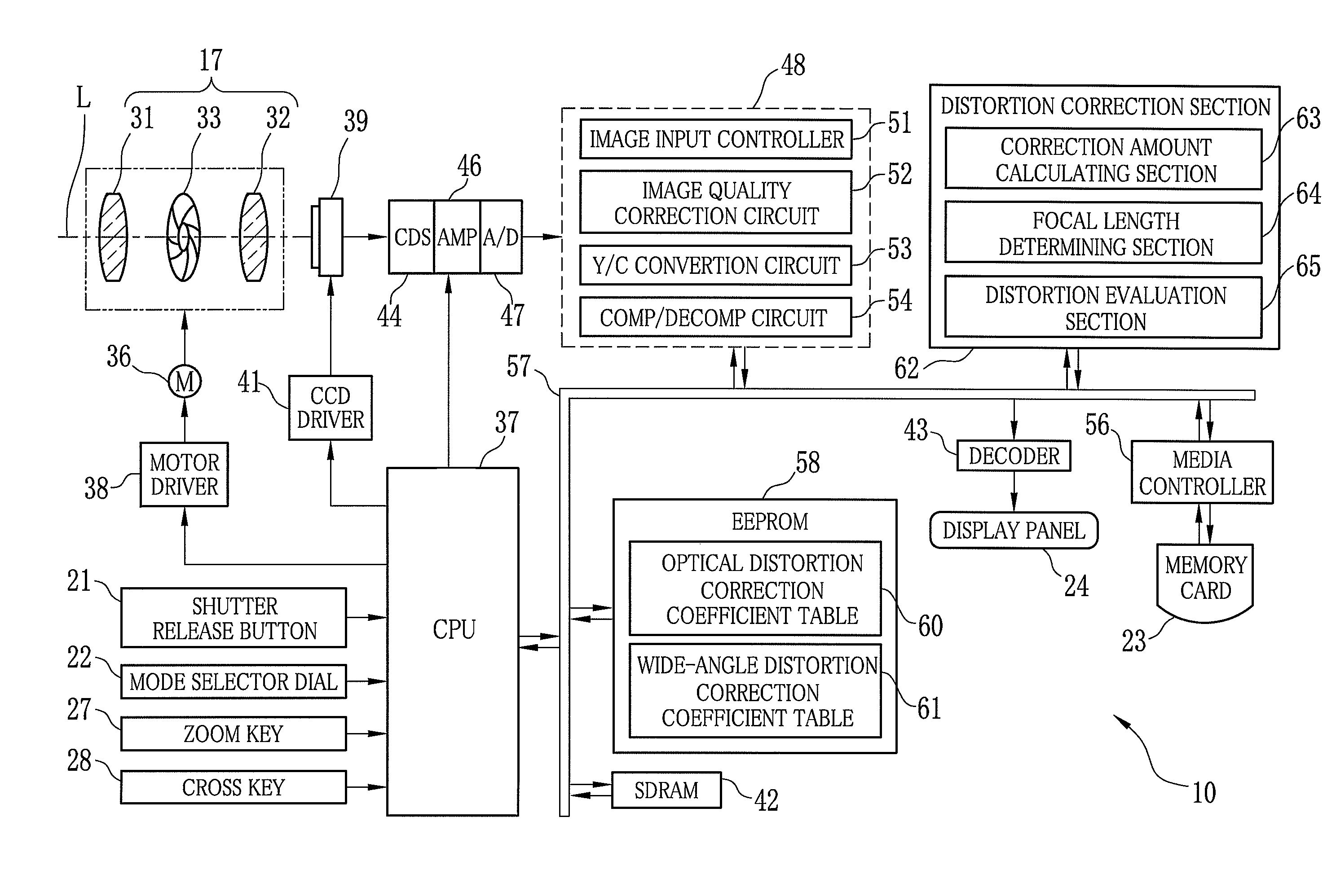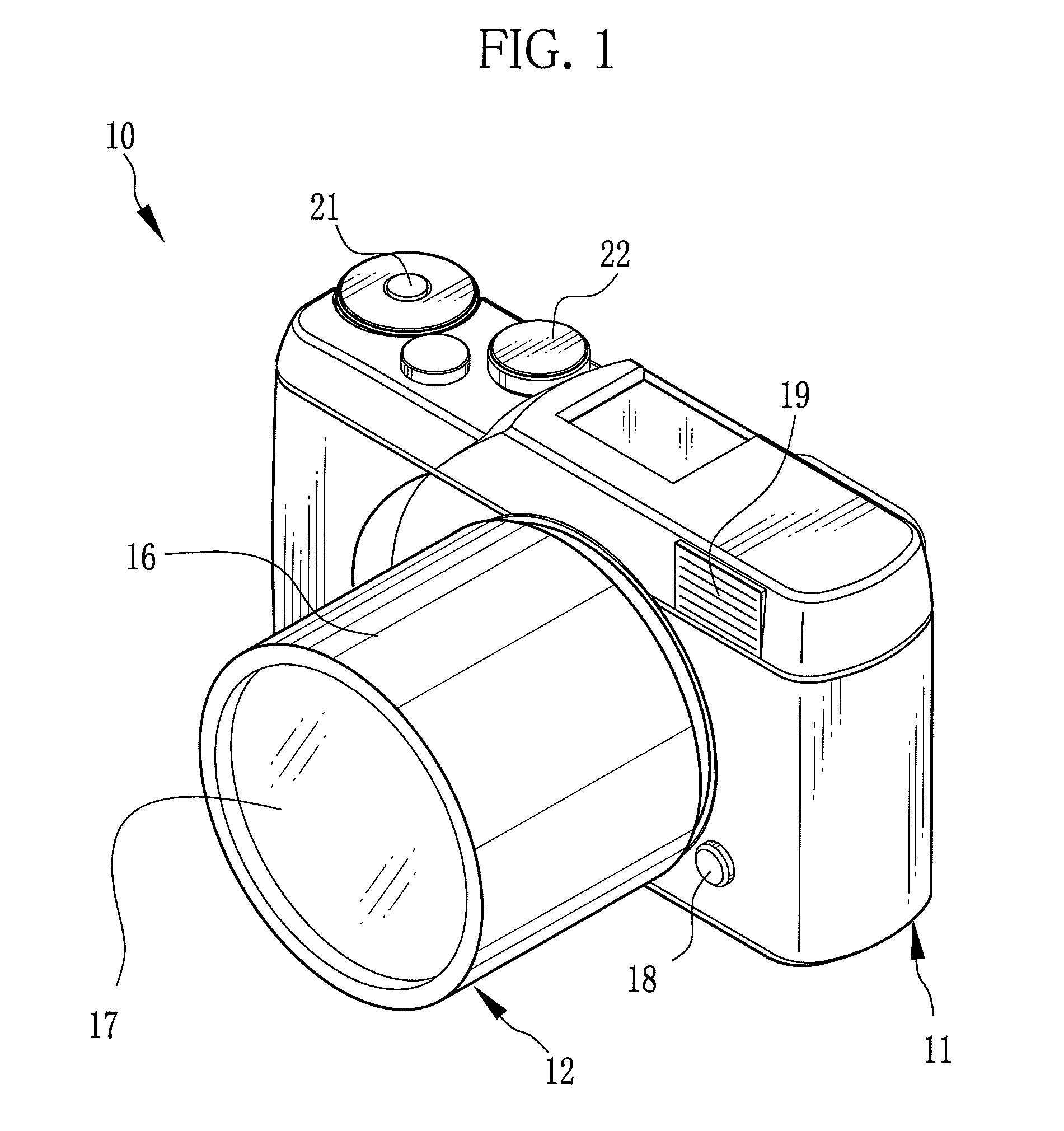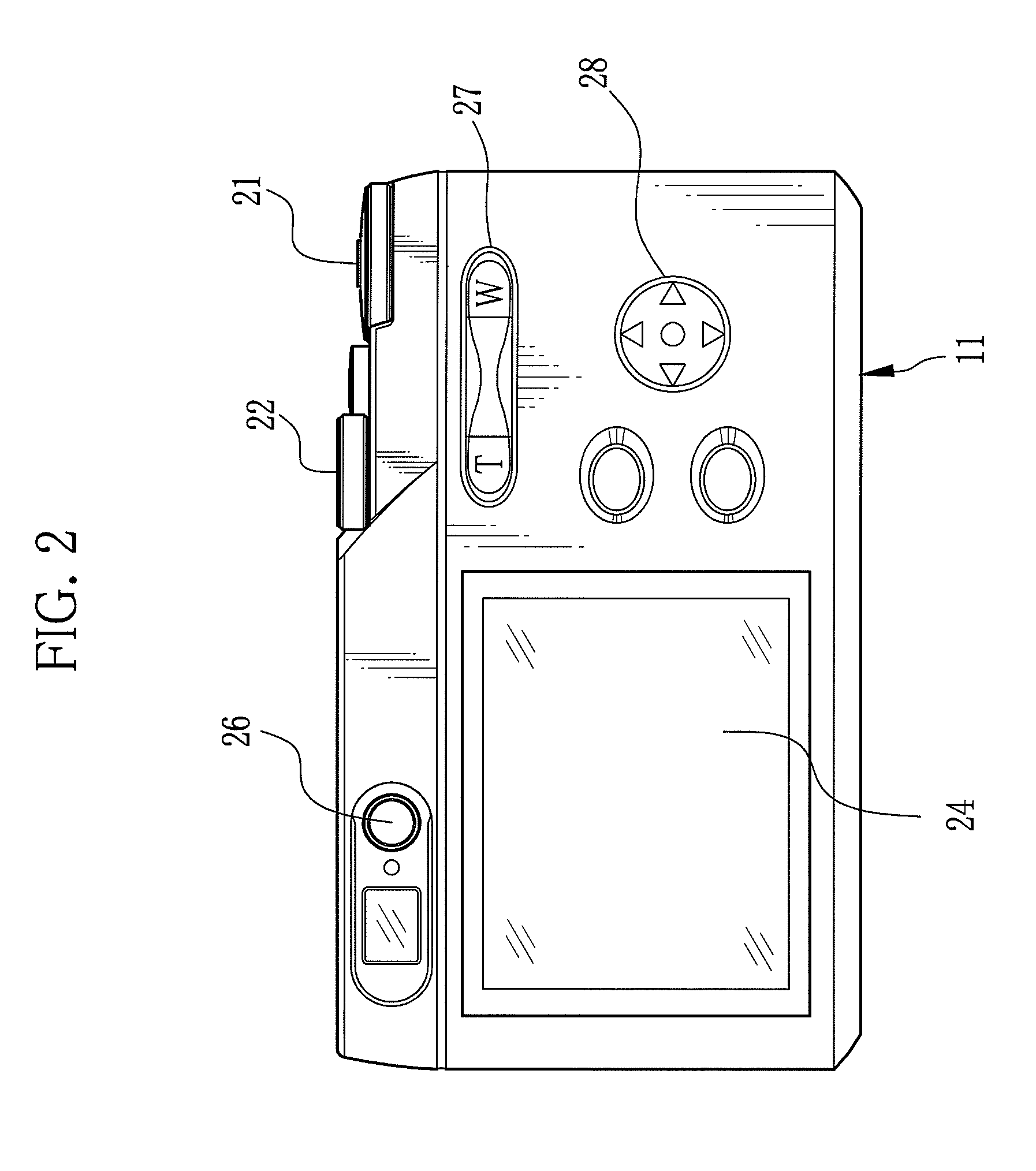Imaging apparatus for correcting optical distortion and wide-angle distortion
a wide-angle distortion and imaging apparatus technology, applied in the field of wide-angle distortion, can solve the problems of image blurred or distorted, aberration of the lens used, image distortion, etc., and achieve the effect of small distortion
- Summary
- Abstract
- Description
- Claims
- Application Information
AI Technical Summary
Benefits of technology
Problems solved by technology
Method used
Image
Examples
first embodiment
[0040]Referring to FIG. 1, a digital camera (imaging apparatus) 10 is composed of a camera body 11 and a detachable lens unit 12.
[0041]The lens unit 12 includes a lens barrel 16 and a taking lens 17 disposed in this lens barrel 16. The lens unit 12 and the camera body 11 have, on their mount portions, bayonet claws (not shown) to interlock with each other. When the lens unit 12 is mounted and rotated on the camera body 11, the bayonet claws interlock with each other, and the lens unit 12 is securely attached to the camera body 11. The lens unit 12 is detachable from the camera body 11 and changed with another lens unit having a different type of taking lens, if necessary.
[0042]On a front surface of the camera body 11 are provided an unlock button 18 and a flash emitter 19. To prevent accidental drop off of the lens barrel 16 from the camera body 11, the lens unit 12 is locked once the lens unit 12 is attached to the camera body 11. The unlock button 18 is pressed to unlock the lens ...
second embodiment
[0087]While in the above embodiment the coordinate transform processing to cause the negative distortion is applied to an image with the wide-angle distortion, the distortion aberration of a lens may be used to correct the wide-angle distortion. This is explained below as a second embodiment, in which the same components are designated by the same numerals as the first embodiment, and the detailed explanation thereof are omitted.
[0088]In FIG. 9, a taking lens 212 has such optical characteristic that produces the negative distortion in at least the wide-angle side. Nonetheless, it is more preferred that the taking lens 212 always produces the negative distortion across the wide-angle end to the telephoto end. In addition, a digital camera 210 can enables and disables (on / off) the wide-angle correction function. Therefore, as shown in FIG. 10, when an image is captured with the wide-angle distortion correction function being off, a distortion correction section 211 applies the coordin...
third embodiment
[0099]While in the first and second embodiments one of the wide-angle and the optical distortion is selectively corrected depending on the setting of the image capture modes, it may be possible to selectively correct one of the two depending on the type of a subject. This is explained below as a third embodiment, in which the same components are designated by the same numerals as the above embodiments, and the detailed explanation thereof is omitted.
[0100]As shown in FIG. 12, a digital camera 310 includes a face detecting section 311 to detect human faces in a picture frame. The obtained information, such as presence / absence of human faces, the position, size, number of the detected faces, is stored as face detection data to the SDRAM 42. The face detection data is retrieved by a distortion correction section 312, and used to decide which to correct the optical distortion or the wide-angle distortion. The face detection is performed by so-called a pattern matching method that compar...
PUM
 Login to View More
Login to View More Abstract
Description
Claims
Application Information
 Login to View More
Login to View More - R&D
- Intellectual Property
- Life Sciences
- Materials
- Tech Scout
- Unparalleled Data Quality
- Higher Quality Content
- 60% Fewer Hallucinations
Browse by: Latest US Patents, China's latest patents, Technical Efficacy Thesaurus, Application Domain, Technology Topic, Popular Technical Reports.
© 2025 PatSnap. All rights reserved.Legal|Privacy policy|Modern Slavery Act Transparency Statement|Sitemap|About US| Contact US: help@patsnap.com



